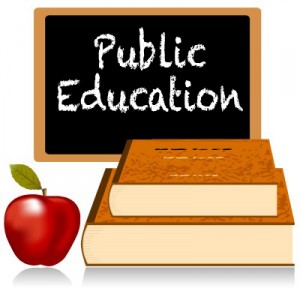 If you would love to work in education, but do not have a desire to become a licensed classroom teacher, you may want to learn more about the Education and Public Policy (EPP) degree. While a general degree in education can be useful, this degree typically covers content to prepare teachers for classroom environments and Praxis tests. When you take an interdisciplinary EPP program, you will study curriculum that is designed to make you a key participant in the world of educational policy where you may become a policy analyst working with a public agency or join efforts for educational reform with organizations or interest groups. Read on, and learn more about the the EPP degree, the content that will be covered, and how to find the best program.
If you would love to work in education, but do not have a desire to become a licensed classroom teacher, you may want to learn more about the Education and Public Policy (EPP) degree. While a general degree in education can be useful, this degree typically covers content to prepare teachers for classroom environments and Praxis tests. When you take an interdisciplinary EPP program, you will study curriculum that is designed to make you a key participant in the world of educational policy where you may become a policy analyst working with a public agency or join efforts for educational reform with organizations or interest groups. Read on, and learn more about the the EPP degree, the content that will be covered, and how to find the best program.
The New Approach to Prepare Students For Positions in Public Policy?
The EPP degree is a fairly new undergraduate option that was created in response to the growing demand for policy experts at local and federal levels in education. With more and more associations calling for action and pushing for policies that allow all students to get the quality education that they deserve, there has become a need for formal training programs that will prepare grads for a joint role in public policy and education all at once, according to The National Association for the Education of Young Children. While not many schools offer these new interdisciplinary programs, some schools are recognizing how important it is to prepare Public Policy majors to deal with the unique issues that arise in education alone.
What Does the Interdisciplinary EPP Degree Program Cover?
The purpose of the EPP degree is to prepare students to start careers with educational associations, organizations, government agencies, or community public service agencies. After completing all of the required courses, the objective is that students will be skilled research consumers and analysts who can work to improve social justice and reform the educational system in areas where it is not effective. The academic plan and required coursework will vary from school to school, but some the courses that you will take before you graduate will include: policy problems, public systems, community economic development planning, social change, contemporary youth issues, leadership development, leadership practices, ethics, critical thinking, gender roles in communications and more.
Getting Field Experience in Educational Public Policy as an Undergraduate
In addition to completing classroom credits, many programs have a field requirement. The field requirement involves spending summer or winter exploring career options and completing an on-site research project. You will be placed in a setting where you will observe, contribute and then report to a supervisor. This can be extremely beneficial in a field like public policy, because it will add to your resume and help you develop professional workplace skills that the employers are really looking for.
Related Resource: Adult Education
If you are very serious about becoming a policy analyst or an individual who is involved in policy reform, you should seriously consider the benefits of earning an Education and Public Policy degree from a reputable institution. One way to ensure that the school that you are choosing to attend has high-quality instructors and curriculum is to determine if the school is affiliated with a body like the Association for Public Policy Analysis and Management. By choosing to attend a program with a member institution, you can be sure that the Education and Public Policy program that you take will prepare you for your professional life.
Be the first to comment